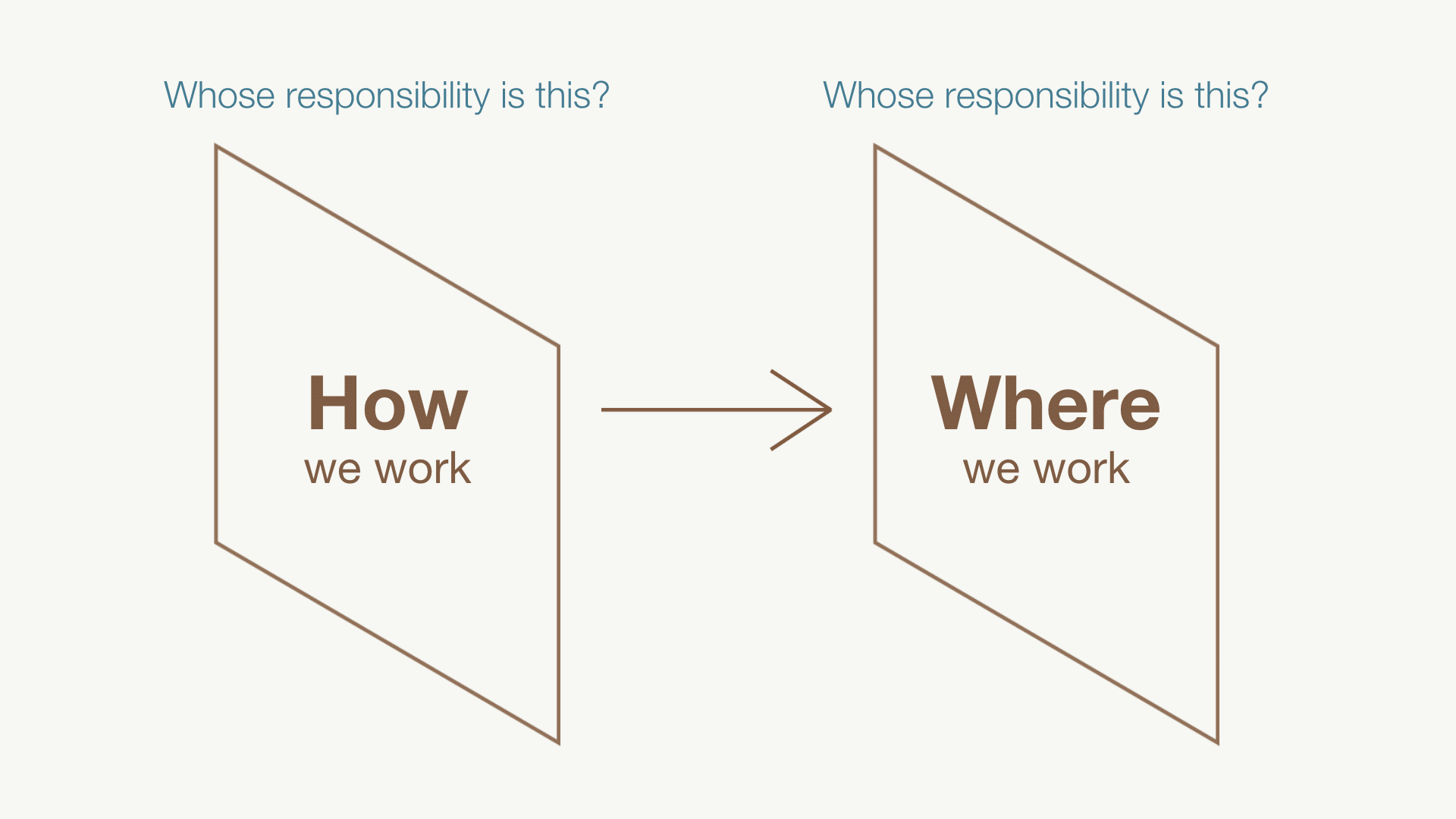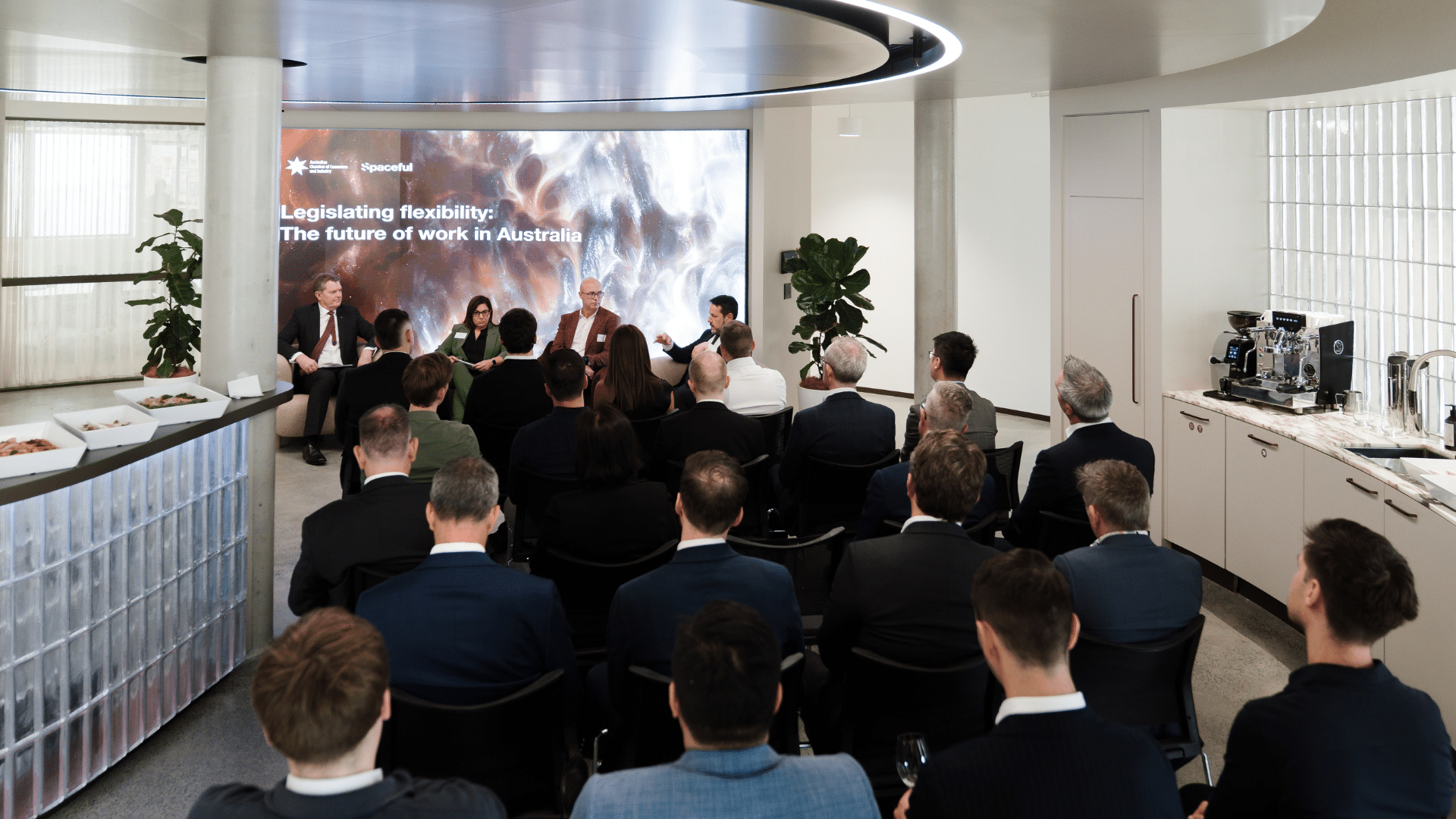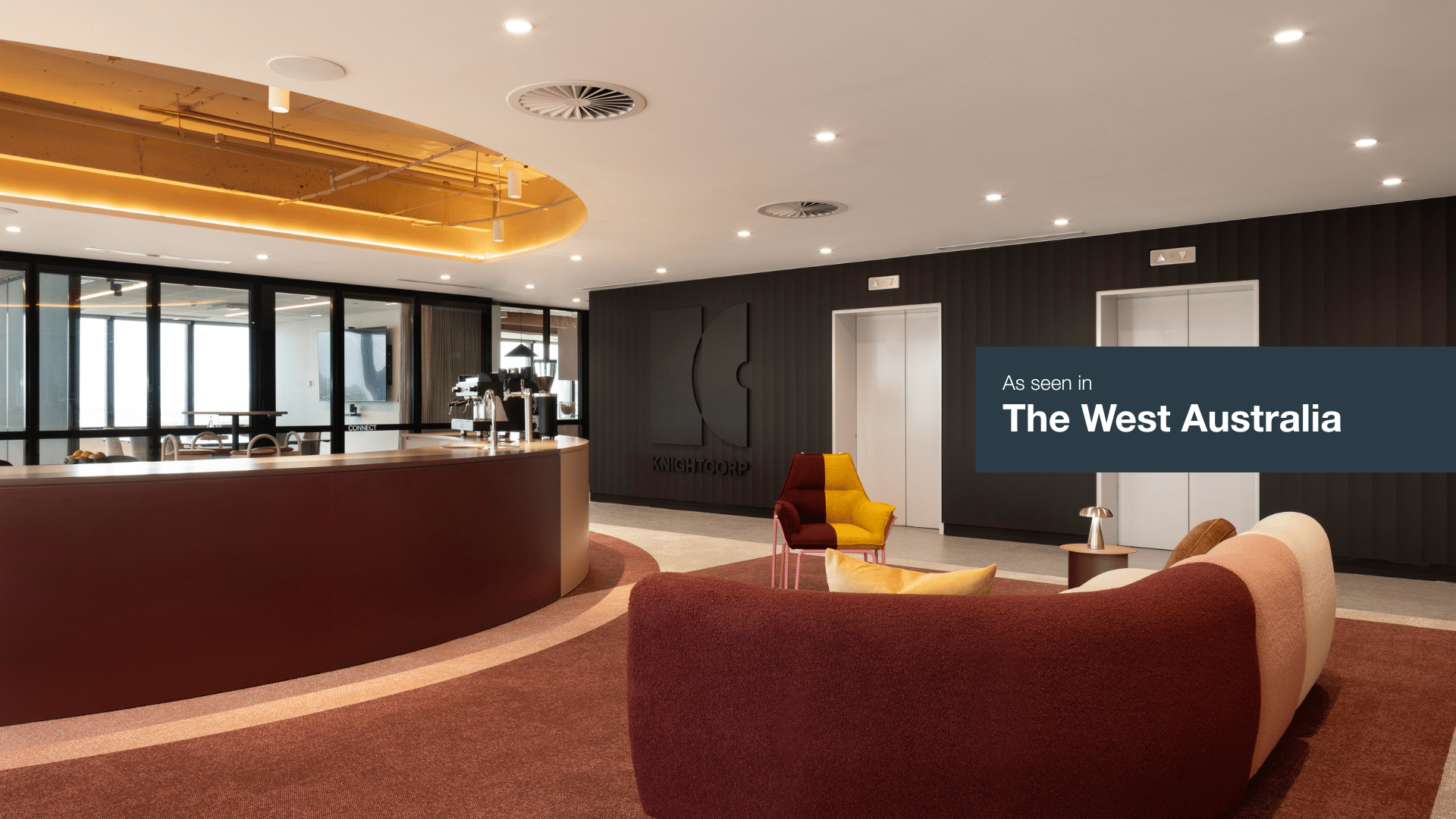
A Global Dilemma
Spaceful recently embarked on an international workplace tour to share Australian workplace expertise and learn more from international best practices on the future of work and workplace.
The tour revealed a universal workplace trend: uncertainty in workplace strategy. Our findings revealed that companies still struggle with post-pandemic workplace questions, such as how to attract employees back to the office, whether to mandate attendance or improve workspaces, and perhaps most importantly, who is responsible for making these decisions.
The Disconnect: Responsibility without autonomy
A key finding from our tour is that the C-suite often delegates return-to-office initiatives to internal workplace and facilities teams. However, the question arises: can this challenge be solved by one team alone or does it require a more collaborative approach?
Currently, workplace teams are facing the challenge of increasing office attendance. To address this, they’ve implemented several strategies, such as:
- Driving People Connection: Activating the space by supporting and championing community-driven events.
- Driving Workplace Experience: Securing business cases to invest in short-term improvements that enhance the physical work environment.
- Measuring Efforts: Installing and establishing sensors and dashboards to track the progress of return-to-office efforts based on office attendance.
The issue here, is that the business as usual (BAU) tools available to workplace teams offer them only the ability to address WHERE people work and do not necessarily give them the autonomy to change HOW people work. How can workplace teams create meaningful strategies for the physical space that will best support their colleagues if the discussion on HOW to work best now and in the future has not yet been addressed? Are we putting the proverbial cart (the where) before the horse (the how)?
This lack of autonomy can stifle the ability of workplace teams to enact meaningful change that aligns with business strategies. It’s a conundrum where accountability lies with the workplace team, but the power to drive strategic decisions on how people work remains firmly with senior leadership.
A lack of direction from leadership can create a cycle of inaction. This, in addition to the lack of autonomy given to real estate teams to make those decisions, not only hinders progress but also creates frustration within teams tasked with fulfilling the somewhat impossible expectations.

How can workplace strategy experts bridge the gap?
It is crucial first to define what workplace strategy entails. At its core, workplace strategy is the process of aligning an organisation’s physical workspace with its business objectives, workforce needs, and overall intended culture. Before designing office spaces (the WHERE), we must understand HOW people work. At Spaceful, we prioritise this step.
The value of bringing workplace strategy experts into the equation lies in their ability to tackle challenges with a multidisciplinary approach, engaging every level of the organisation and its various teams—both horizontally and vertically. A steering committee is essential in this process, driving and making progressive decisions throughout the duration of the workplace strategy program.
Workplace strategy consultants act as facilitators, bringing leadership and workplace teams into alignment. By guiding discussions, synthesising insights, and translating business goals into actionable plans, these consultants ensure that the organisation’s strategy is not only comprehensive but also implementable.
Workplace strategists bridge the gap between HOW and WHERE people work, offering clarity and evidence-based guidance on ways of working to support informed decisions.
Forward real estate planning with confidence
As businesses continue to face uncertainty, the need for clear, actionable workplace strategies has never been more critical. The insights gained from our global research underscore the importance of bridging the gap between leadership expectations and workplace realities. With the right support and guidance from workplace strategy experts, organisations can move forward with confidence, knowing they have the tools and expertise to create environments that are not only fit for purpose today but set you up for future success too.


